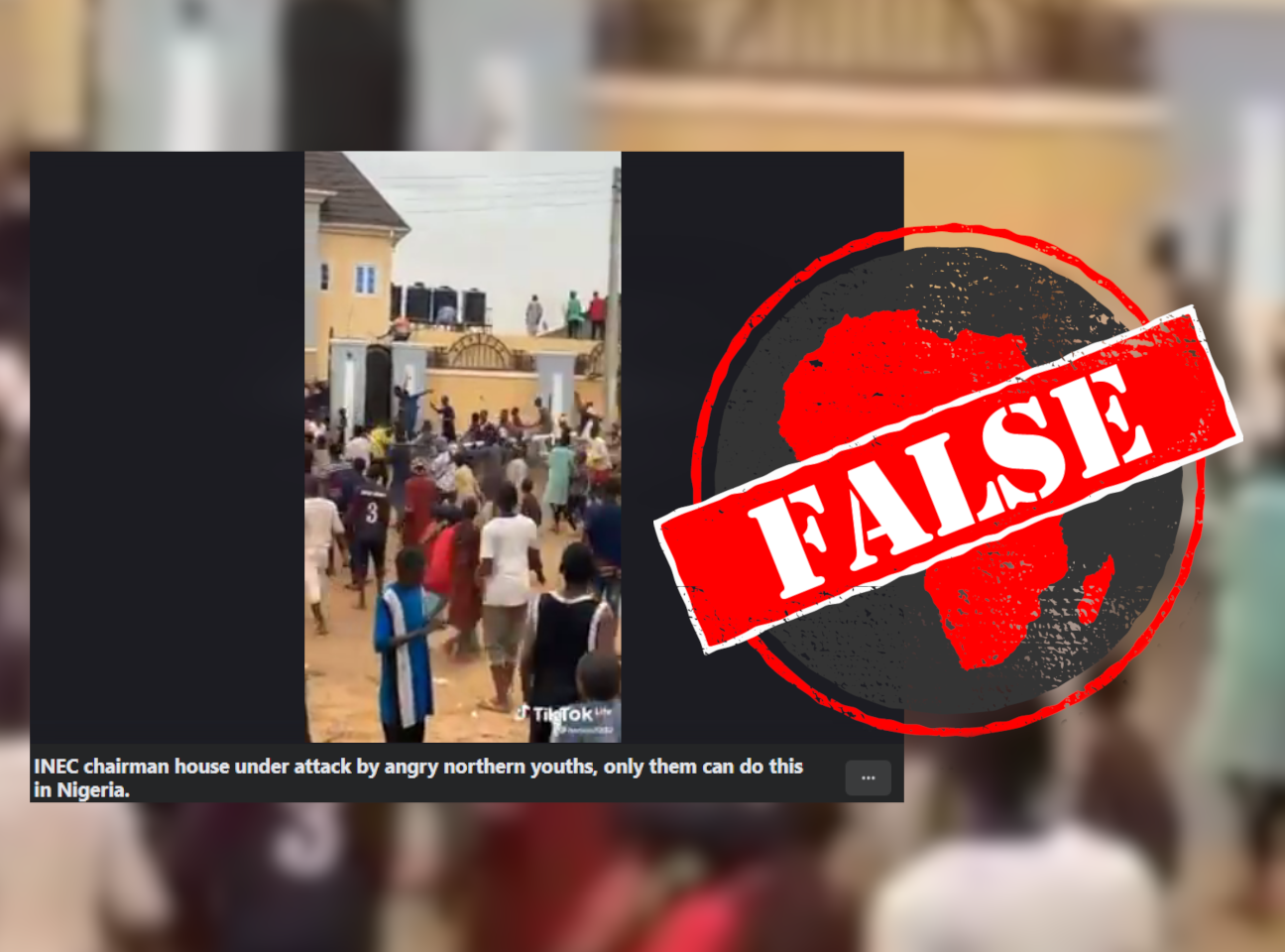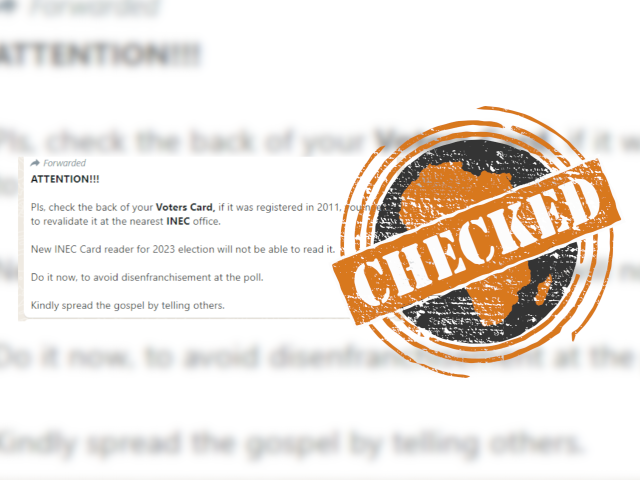IN SHORT: A video is being shared on social media with the claim it shows youths in northern Nigeria, angry at the outcome of the presidential election, attacking the home of the electoral body’s chairperson, Mahmood Yakubu. But there’s no evidence for this and Inec denies it.
A video shared on Facebook claims that a house in northern Nigeria belonging to Mahmood Yakubu, the chairperson of the country’s electoral body, was attacked by youths.
The video, which lasts 14 seconds, appears to show a group of young people wielding sticks as they enter a compound.
It is captioned: “INEC chairman house under attack by angry northern youths, only them can do this in Nigeria”.
The Independent National Electoral Commission, or Inec, is responsible for conducting elections in Nigeria. It is headed by Yakubu.
On 1 March 2023, Inec declared Bola Tinubu, the candidate of the ruling All Progressives Congress party, the winner of the 25 February presidential election. But opposition parties have accused Inec of vote rigging, in favour of Tinubu, and demanded Yakubu's resignation.
The video was posted on Facebook with the same claim here, here, and here.
But was the Inec chairperson’s house attacked? We checked.

‘Narrative by mischief makers’ says Inec
Inec debunked the claim in a tweet shared on its verified Twitter handle on 25 March. It described the allegation as a “desperate smear campaign”.
The commission said the house in the video did not belong to its chair.
The statement reads: “This narrative is indeed the latest in the series of desperate smear campaign efforts by mischief makers. The public should disregard it.”
Republish our content for free
For publishers: what to do if your post is rated false
A fact-checker has rated your Facebook or Instagram post as “false”, “altered”, “partly false” or “missing context”. This could have serious consequences. What do you do?
Click on our guide for the steps you should follow.
Publishers guideAfrica Check teams up with Facebook
Africa Check is a partner in Meta's third-party fact-checking programme to help stop the spread of false information on social media.
The content we rate as “false” will be downgraded on Facebook and Instagram. This means fewer people will see it.
You can also help identify false information on Facebook. This guide explains how.



Add new comment